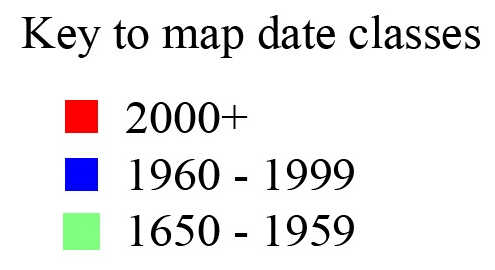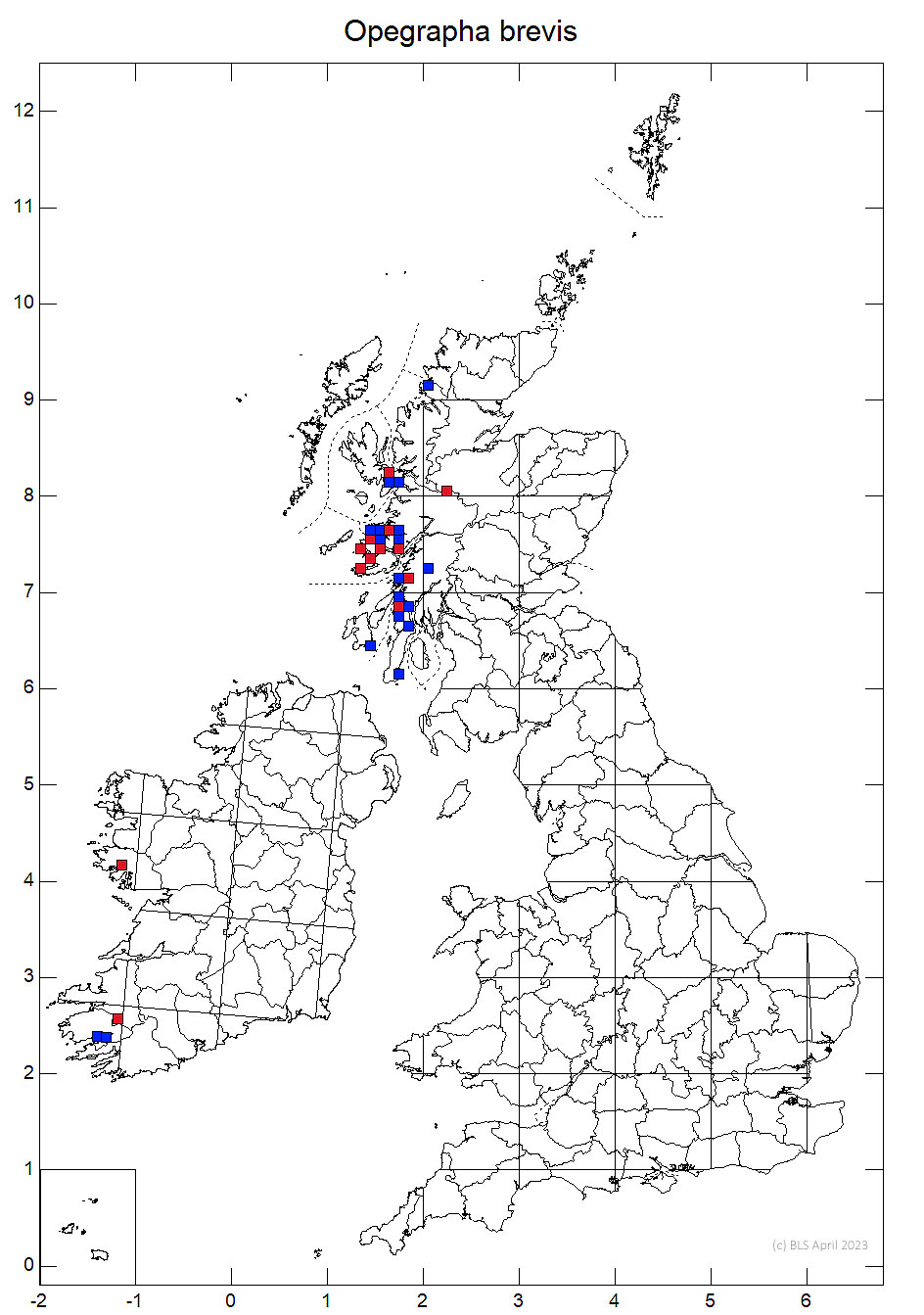Opegrapha brevis
An obligate fungal parasite of the temperate rainforest specialist Crutarndina petractoides. Found on the hosts thallus as scattered or somewhat clustered, black apothecia in which disc soon widely expands with apothecia becoming elliptical or disciform. Restricted to the core of the hosts distribution in western Highlands and inner Hebrides and in south west Ireland where it is confined high quality temperate rainforest with strong populations of its obligate host.
Thallus absent (lichenicolous on Crutarndina petractoides). Ascomata scattered or somewhat clustered, black, not pruinose, at first shortly lirellate with a slit-like disc, but the disc soon widely expanded and ascomata becoming elliptical or disciform, 0.14–0.46 × 0.12–0.24 mm, 0.1–0.14 mm high; exciple well-developed laterally, 23–30 µm thick, brown-black, K+ greenish, at the base narrower and more irregular; epithecium dilute fuscous brown, K–; hymenium 45–60 µm tall, colourless, I+ blue or, in the lower half, reddish; paraphysoids sparingly branched, 1.7–2 (–2.7) µm thick, widening to ca 3.5 µm in the epithecium; asci clavate, 38–50 × 12–15 µm, with a minute dark amyloid apical ring, 4-spored at maturity; ascospores 3-septate, the upper two cells slightly wider, ends obtuse, colourless or becoming brown due to deposition of minute pigment granules in the sheath, (14–) 15–18 × 4.5–5 (–6) µm. Pycnidia inconspicuous, ± immersed, 50–70 µm diam.; conidia cylindrical, straight, 5–7 × ca 0.8 µm.
The species should be placed in the Lecanographaceae close to Phacographa according to Frisch et al. (2014), but an appropriate generic placement is not available.
On Crutarndina petractoides on Corylus, often producing fawn-coloured necrotic patches

Rare, W. Scotland, Ireland. Endemic.
Recorded rather sparsely within the range of its only host Crutarndina petractoides, with a concentration of records from north Mull and Loch Sunart and thinly recorded beyond. Confined high quality temperate rainforest with strong populations of its obligate host.
Britain: Near Threatened & International Responsibility species
Scotland: Priority Taxon for Biodiversity in Scotland
Cannon, P., Coppins, B., Ertz, D., Fletcher, A., Pentecost, A. & Simkin, J. (2021). Arthoniales: Opegraphaceae, including the genera Llimonaea, Opegrapha, Paralecanographa and Sparria. Revisions of British and Irish Lichens 13: 1-19. Link
Frisch, A., Thor, G., Ertz, D. & Grube, M. (2014). The Arthonialean challenge: restructuring Arthoniaceae. Taxon 63: 727-744.
Text by Neil A Sanderson based on Cannon et al (2021)


